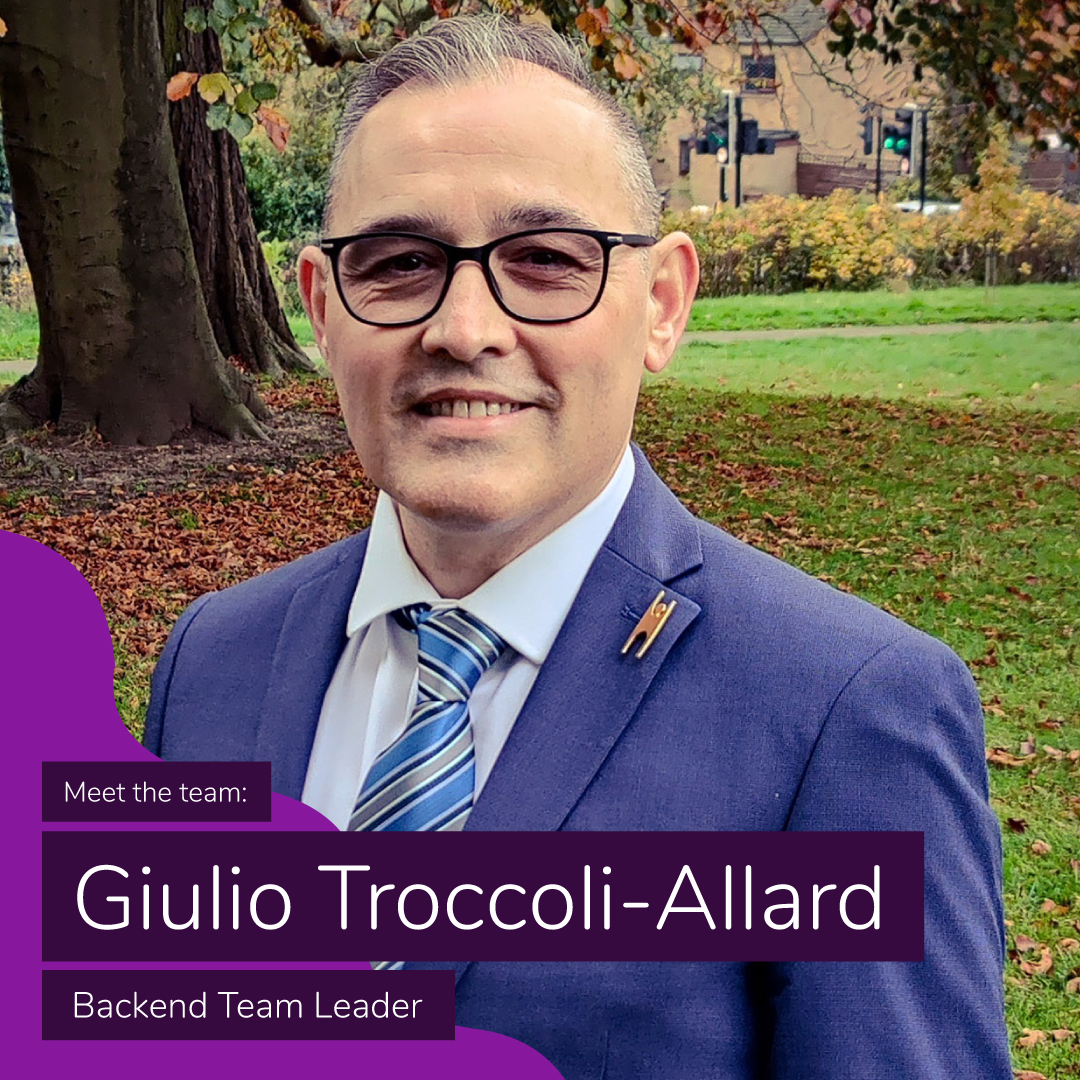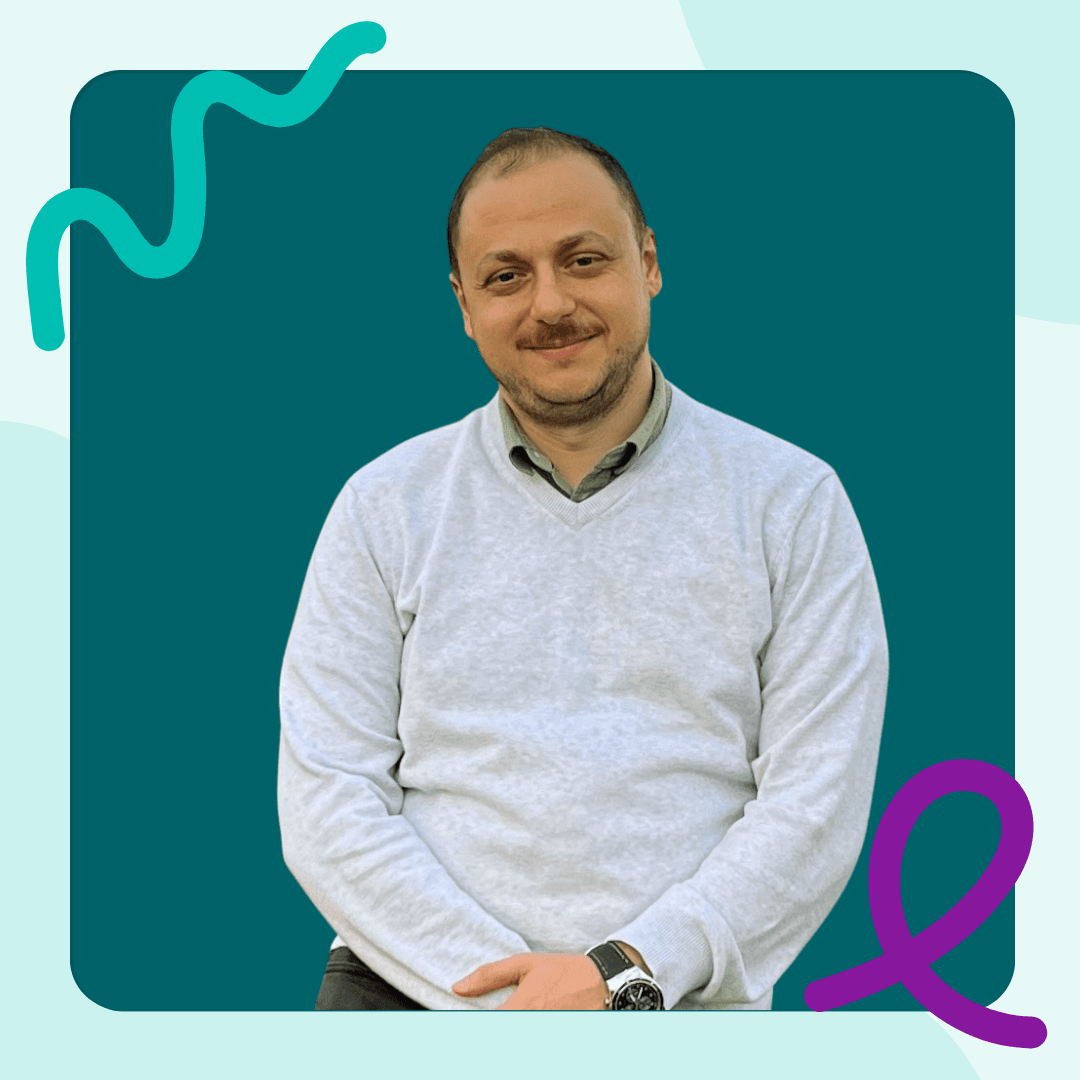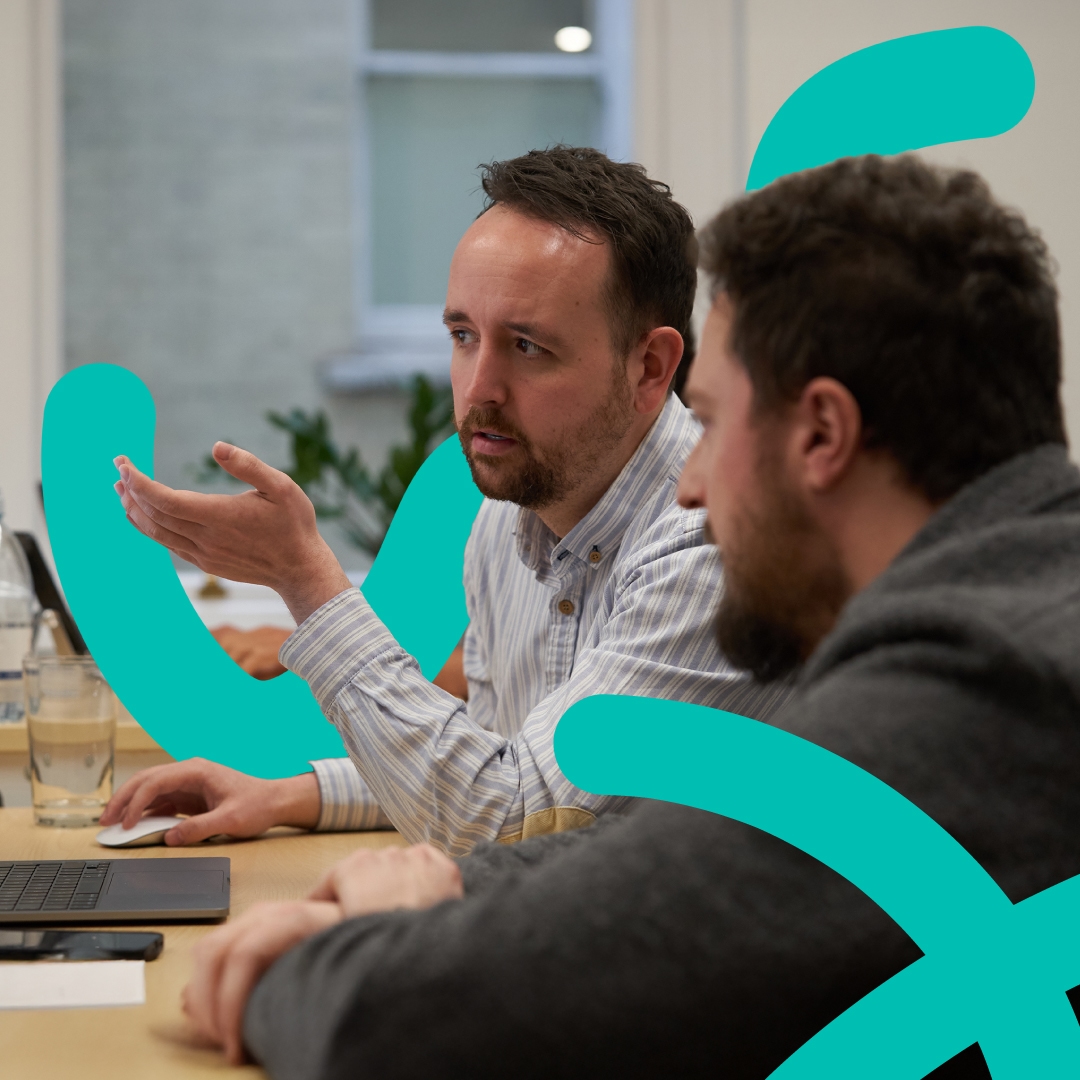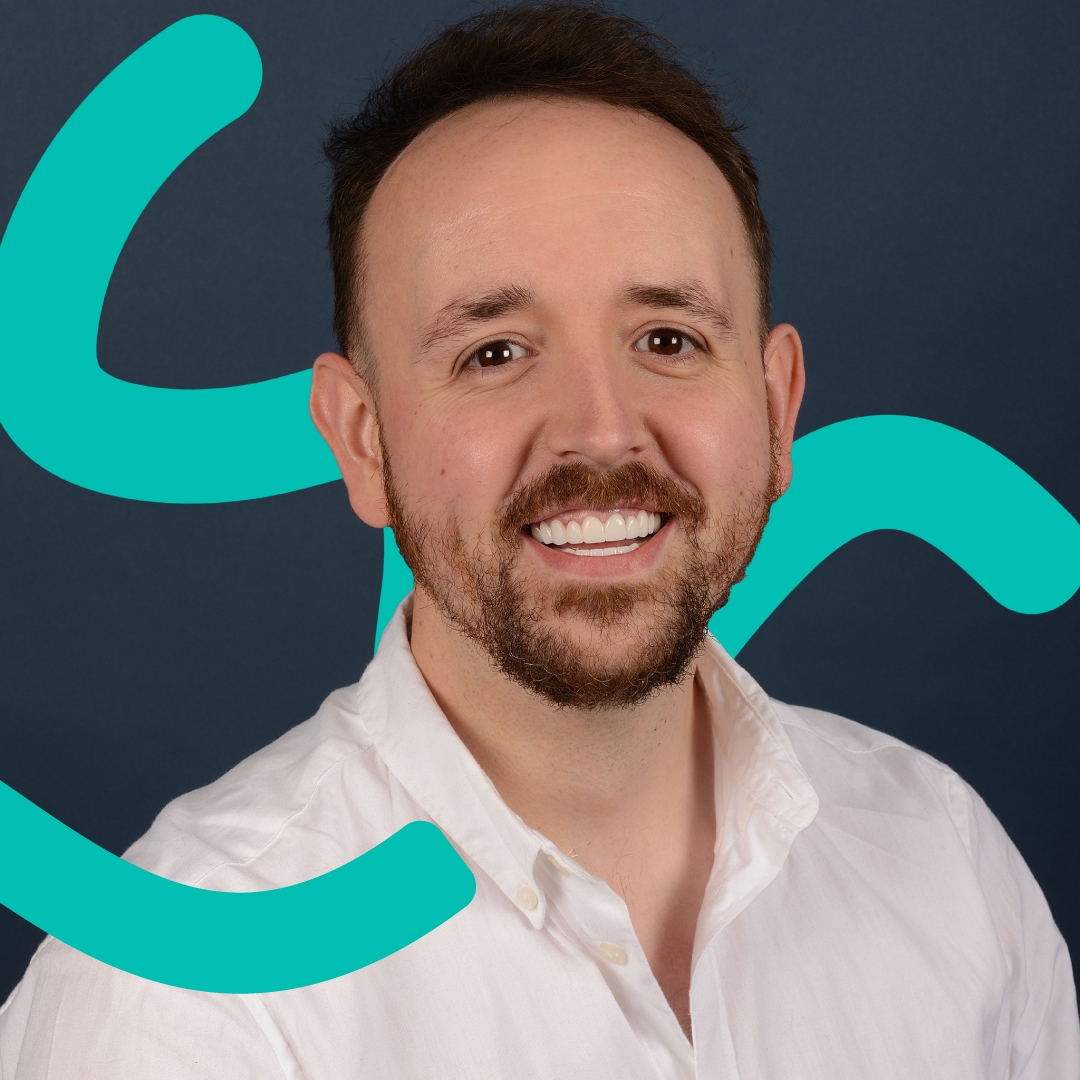Our amazing developer Giulio’s Italian passion and emotion really come through in this interview. Part of the #WeAreHumans series we love how these insights show the human side of our brilliant team.
What does your work entail?
I’m part of the team that looks after the CareLineLive management portal and iOS/Android app. More specifically I work on the backend, basically the part you cannot see, making sure everything works as expected. Anything from correct calculation of pay to being able to attach a document, from filling in an assessment to scheduling bookings.
I am also the line manager for the backend developers, with the usual responsibilities of a line manager, with the added duty of overseeing their workload.
Describe a typical day
I wish I could, or maybe I don’t, it would be a bit boring if it was always the same.
My day is typical split into my double role: developer and team leader.
As a developer I could spend coding a new feature or fixing a bug, doing research for a new feature, writing documentation, or reviewing other developers’ code. It’s one of the best thing about being a developer, you can, and often do, wear many hats.
On the other hand, I also need to frequently liaise with Sean (our Product Manager) and Dec (our Developer Director), so I can assign the most suitable tickets to the team, make sure our developers are happy and there isn’t anything blocking them doing their work, have regular one-to-one meetings with them, etc. You know, being a good line manager.
What did you do before joining CareLineLive?
I have worked for many companies in my career, but one of the most recent was a company with a product quite similar to CareLineLive’s. Their product was also about managing employees, with rostering, payroll, holidays, etc, so lots of what I have learned there I now apply at CareLineLive.
Why did you join CareLineLive?
A few reasons to be honest. In the last few years, due to family circumstances, I could see how much work caring for someone is and the toll it takes on a carer’s life. Working on a product that facilitates that work and alleviates that toll was something that I felt I could really care about.
When I had a chat with Dec (our Developer Director) and Josh (our MD), during the interview process, I really got the feeling that they do care about making a piece of software that works for their users, managers and carers alike, which is, let me tell you, not always the case and quite refreshing.
From a more technical point of view, not only do we use my favourite coding framework, called Laravel, but Dec is as passionate as me about it, and wants to keep up-to-date with the latest releases. I have often worked for companies that did not share my view and lagged behind for fear of breaking things. Don’t get me wrong, we are careful about not breaking things. But technical debt, which is old code, is as bad as a nurse using a mercury thermometer rather than an ear thermometer. You can, and it works, but it’s slower and less accurate.
Best part of the job
Seeing my suggestions and ideas taken seriously. It’s rewarding to be able to discuss your idea knowing that everybody else is actually listening. That doesn’t mean we are then implementing my ideas, but that’s not the point. I feel I’m not dismissed just because I’m the new guy or I don’t know the product or whatever other reason. I feel valued. I feel I can, and I have, contributed to the improvement of the product. I’m not just given a task to perform, I’m asked to find the right solution, thinking about the wider issues and implications for users. Is this going to improve the user experience? If I don’t think so, I know I can challenge it.
Worst part of the job
Seeing my suggestions and ideas taken seriously. LOL. Well, I’ve got to implement them then, haven’t I?
On a more serious note, I think what has a bad impact on my work is not having access to our client’s data. Don’t get me wrong, that’s how it should be. We cannot see anything of our client’s data, apart from when we use the management platform with the client’s explicit permission. And even in that case we see it through the “lenses” of the portal, we don’t see the raw data.
But when someone reports an issue, we try and replicate it in one of our environments. Sometimes we cannot, for various reasons. But the most common reason is because the issue is related to the actual data, which we don’t have. It then becomes very difficult to find out what is wrong. And if we don’t know what is wrong, we struggle to fix it.
What you most enjoy about working at CareLineLive?
Mostly I enjoy the people. Not only within my team, but the whole company. They are just funny, laid back, decent people, who really want to provide an extremely good product because they honestly care about what they do and what it means to our clients and ultimately to the service users.
What is something that people in home care have to deal with that you want to help fix?
Paperwork. There is a lot of paperwork, probably in any job. But when filling in forms, carrying out assessments, submit reports, etc., takes away valuable time from a carer’s actual job, then it becomes an issue.
We will never get away without paperwork. Those forms will still need to be filled in, those assessments carried out, those reports submitted. But if we can reduce the time spent on them, and we do, that means more time for a carer to spend with the service user, which is not only better for the service user but for the carer too.
Let’s be honest, carers don’t do the job for the money or to spend time on paperwork. They do it because they want to help people. Spending time on paperwork prevents them doing what they love doing, and if they can’t do what they love, they will end up leaving the profession. And we already have too few of them that we cannot afford to lose any more.
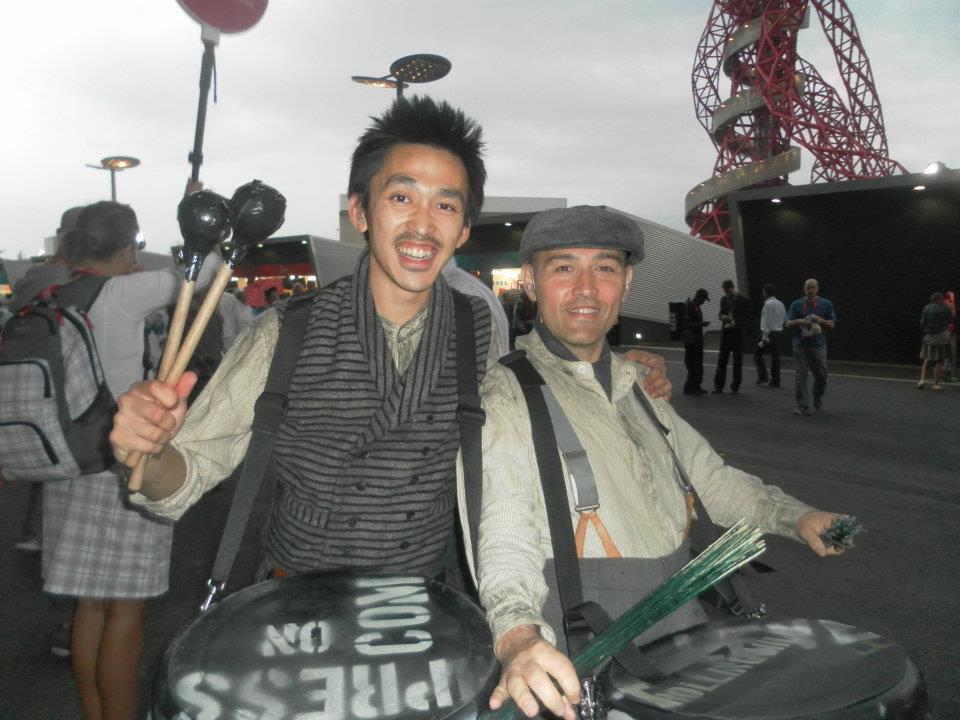
Surprising fact about you
I had a gig in front of 900 million people, according to Wikipedia. Admittedly, I was part of a 1,000-strong band, with another 14,000 ensembles, but still, it was pretty awesome. I even got a mention on IMDb.
I’m talking about the London 2012 Olympics Opening Ceremony. I was one of the drummers in the Pandemonium section. It was the best experience of my life.
I still remember when I got the email that I had been offered a spot as a drummer. Me. A drummer. I hadn’t even touched a drum before. It turned out I wasn’t even allowed near a real drum, none of us were. Instead, they gave us bins and buckets. Yes, that’s correct, bins and buckets. But when Danny Boyle and Rick Smith explained the concept to us, we understood. And it turned out absolutely amazing. I still have goosebumps these days, ten years after that magical night, when I watch it again on YouTube.
